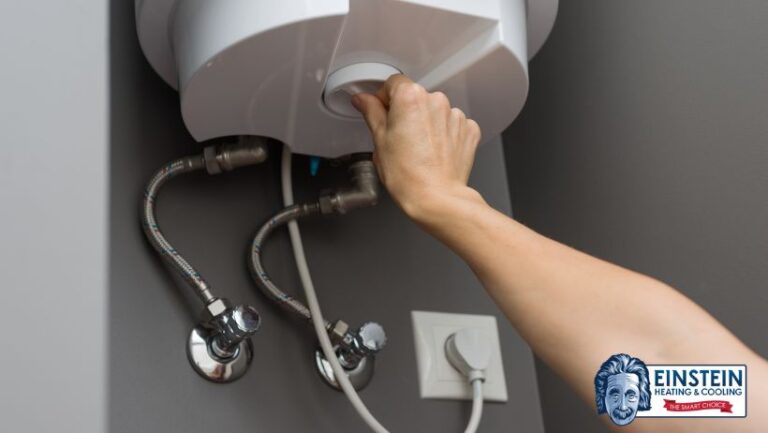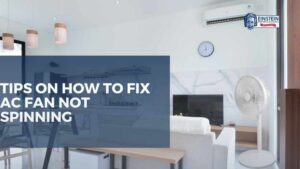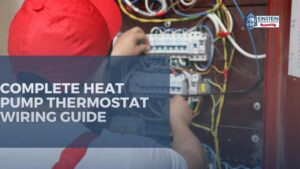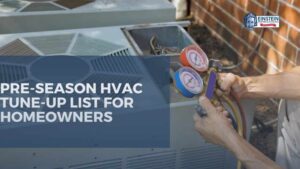Tankless water heaters play a pivotal role in HVAC systems, providing an efficient and on-demand hot water supply for various household needs. However, like any other appliance, they are not immune to problems and issues that can affect their performance. In this comprehensive guide, we will delve into the top five common problems associated with tankless water heaters and provide insights into resolving these issues.
Inadequate Hot Water Supply
When a tankless water heater fails to deliver a sufficient supply of hot water, it can be a frustrating experience, particularly during colder seasons. Several factors contribute to this issue:
1. Overloaded Demand
Tankless water heaters are known for their efficiency and on-demand hot water supply, but they have their limits. When your tankless water heater struggles to keep up with your household’s hot water demands, it can lead to frustrations, particularly during peak usage times. Overloaded demand is a common issue, and it can result from several factors:
A. High Hot Water Demand
Overloaded demand often occurs when multiple hot water appliances or fixtures are used simultaneously. For instance, running the dishwasher, and washing machine, and taking a hot shower at the same time can strain your tankless water heater’s capacity. The result is often an insufficient supply of hot water, causing discomfort and inconvenience.
Solution: Addressing the problem of inadequate hot water supply often starts with understanding the demands placed on your unit. If you find that simultaneous usage of multiple hot water appliances strains your tankless water heater’s capacity, you have several options to consider:
- Installing a Higher-Capacity Unit
Upgrading to a tankless water heater with a higher capacity is a long-term solution to address overloaded demand. Higher-capacity units can handle more simultaneous hot water usage, ensuring that everyone in your household has access to hot water when they need it. However, it’s important to consult a professional technician to assess your household’s specific needs and determine the appropriate tankless water heater size for your home.
- Reducing Hot Water Demand
In addition to upgrading your tankless water heater, you can also take steps to reduce hot water demand in your household. This not only alleviates the strain on your unit but also promotes energy efficiency and water conservation. Some strategies to consider include:
- Installing Water-Saving Fixtures: Water-saving fixtures, such as low-flow faucets and showerheads, can significantly decrease the amount of hot water needed for various household tasks. They maintain comfort while conserving both water and energy.
- Staggering Hot Water Usage: Encouraging household members to stagger their hot water usage can help distribute the demand more evenly. For example, taking showers at different times can prevent overloading the system.
2. Sediment Buildup
Sediment buildup is a common issue in tankless water heaters, and it can lead to a variety of problems, including reduced hot water flow and heating efficiency. Sediment, typically composed of minerals like calcium and magnesium, accumulates in the heat exchanger and other components over time. This buildup can obstruct water flow and hinder the efficient transfer of heat, ultimately leading to inadequate hot water supply.
Solution: To address sediment buildup and maintain the optimal performance of your tankless water heater, consider the following solutions:
A. Regular Flushing
Performing regular maintenance by flushing your tankless water heater is essential to remove sediment buildup. Flushing involves circulating a descaling solution through the unit to dissolve and remove the accumulated minerals. It’s recommended to consult your unit’s user manual for specific instructions on how to flush your tankless water heater model. Flushing your tankless water heater helps ensure proper water flow and heating efficiency.
B. Professional Maintenance
In addition to DIY flushing, consider enlisting the services of a qualified technician for periodic maintenance, including thorough descaling and inspection. Professional maintenance goes a long way in preventing sediment buildup and maintaining the longevity of your tankless water heater. Technicians can assess the state of your unit, clean components, and address any potential issues before they become major problems.
3. Inadequate Gas Supply
Proper gas supply is crucial for the efficient operation of a tankless water heater. Inadequate gas supply can result in the heater’s inability to produce sufficient heat, leading to an insufficient hot water supply. Several factors can contribute to this issue, affecting the performance of your tankless water heater.
A. Gas Line Sizing
Verifying that your gas line is appropriately sized for your tankless water heater is essential. If the gas line is too small, it can restrict the flow of gas to the unit, resulting in inadequate heating capacity. To address gas line sizing issues:
Solution: Consult the manufacturer’s guidelines or seek professional advice to ensure that the gas line is of the correct size for your tankless water heater. An undersized gas line can lead to reduced heating performance, which can impact the supply of hot water in your household.
B. Gas Pressure
Gas pressure plays a critical role in the operation of your tankless water heater. The gas pressure supplied to the unit should meet the manufacturer’s specifications. If gas pressure is below the required level, it can result in inefficient heating and reduced hot water output.
Solution: Regularly monitor and maintain gas pressure to ensure that it meets the manufacturer’s recommendations. Gas pressure that falls below the specified range can lead to performance issues. In such cases, consulting a professional technician to adjust and maintain the gas pressure is essential.
C. Insufficient Gas Supply
Gas supply problems, including interruptions or insufficiencies, can disrupt the operation of your tankless water heater, leading to an inadequate supply of hot water.
Solution: To ensure that your tankless water heater receives the necessary gas supply, consider the following solutions:
- Gas Line Inspection: Regularly inspect your gas line to ensure it is free from leaks or obstructions. Gas leaks can pose serious safety hazards and hinder the ignition process. If you suspect a gas leak, it is essential to contact a professional technician immediately for diagnosis and repair.
- Consult a Professional Technician: If you experience ongoing issues with gas supply, consulting a professional technician is advisable. They can verify the gas line’s condition and pressure, making any necessary adjustments or repairs to ensure a consistent gas supply to your tankless water heater.
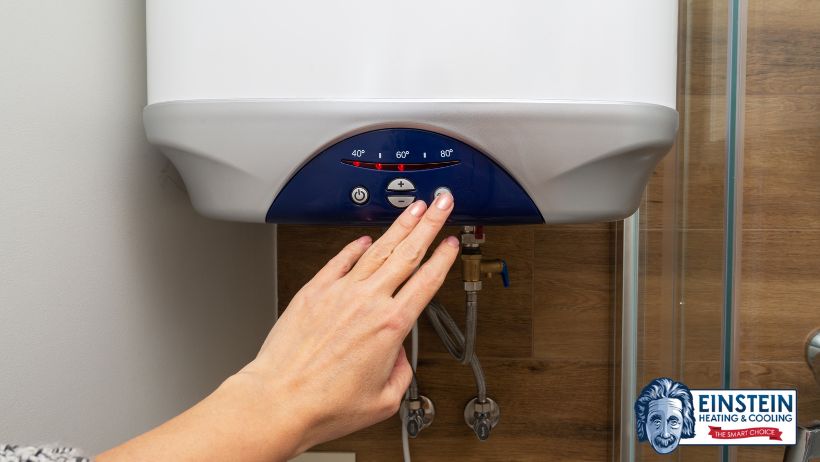
4. Ventilation Issues
Proper ventilation is a critical aspect of maintaining the safe and efficient operation of your tankless water heater within your HVAC system. Ventilation issues can hinder the ignition process and, more importantly, pose safety risks. Inadequate ventilation can lead to insufficient air supply for combustion, resulting in problems with your tankless water heater.
A. Venting System Inspection
Solution: To address ventilation issues effectively, start by conducting a thorough inspection of your tankless water heater’s venting system. Proper venting is crucial to ensure the safe expulsion of combustion byproducts, such as carbon monoxide, and to provide an adequate air supply for combustion. Here’s what to consider during the inspection:
- Installation: Confirm that the venting system is correctly installed as per the manufacturer’s guidelines. Proper installation ensures the efficient removal of exhaust gases and prevents any backdraft issues.
- Obstructions: Inspect the venting system for obstructions. Blockages caused by debris, birds’ nests, or other foreign objects can impede the flow of exhaust gases and prevent proper combustion air intake.
- Compliance with Local Codes: Ensure that the venting system complies with local building codes and safety regulations. Local codes may specify the type of venting material, clearance requirements, and termination location. Non-compliance can lead to safety hazards and operational problems.
B. Professional Assessment
Solution: If you suspect ventilation issues with your tankless water heater, it is advisable to consult a professional technician with expertise in HVAC systems and ventilation. Here’s why seeking a professional assessment is crucial:
- Safety: Proper ventilation is essential for the safe operation of your tankless water heater. It prevents the buildup of harmful gases like carbon monoxide within your home. A professional technician can assess the system’s safety and make any necessary modifications to ensure safe operation.
- Optimal Performance: Adequate ventilation not only safeguards against ignition problems but also contributes to the overall performance of your tankless water heater. By addressing ventilation issues, you can help your unit operate at its peak efficiency.
- Modifications and Repairs: In cases where ventilation issues are identified, a professional technician can make the necessary modifications or repairs. This may involve adjusting the venting system, replacing damaged components, or installing additional ventilation equipment to address specific problems.
- Compliance: HVAC professionals are well-versed in local building codes and safety regulations. They can ensure that your tankless water heater’s ventilation system complies with all relevant standards, preventing potential legal or safety issues.
5. Electrical Problems
Electrical problems within your tankless water heater can disrupt the ignition process, leading to a lack of hot water. These issues can manifest in various ways, from loose connections to damaged wiring or a malfunctioning control board. To ensure the smooth operation of your tankless water heater, it is essential to address and resolve these electrical problems.
A. Regular Inspection of Electrical Components
Solution: Regularly inspect the electrical components of your tankless water heater to ensure they are in good working order. Here’s how you can address and resolve electrical problems:
Loose Connections
- Check for loose electrical connections within your tankless water heater. Loose or disconnected wires can lead to intermittent electrical problems and hinder the ignition process. Tighten any loose connections as necessary to restore proper electrical flow.
- Inspect all wiring harnesses, terminals, and connectors to ensure they are securely fastened. Loose connections can disrupt the electrical circuit and prevent the ignition sequence from proceeding correctly.
B. Damaged Wiring
- Carefully examine the wiring within your tankless water heater for any signs of damage, wear, or exposure. Exposed or damaged wires pose a significant risk and can lead to electrical issues.
- Replace any damaged wiring with appropriate replacement parts. Damaged wires can create short circuits, electrical faults, and safety hazards. Always follow the manufacturer’s guidelines for replacing wiring components.
C. Control Board Examination
- If your tankless water heater exhibits signs of electrical issues, such as error codes or a malfunctioning control board, it may be necessary to replace the control board to restore proper ignition and overall heater performance.
- Consulting a professional technician is advisable when dealing with control board issues. Technicians can diagnose the specific problem, source replacement parts, and ensure proper installation and programming of the new control board.
D. Electrical Safety Precautions
When dealing with electrical components, always take safety precautions. Ensure that your tankless water heater is disconnected from the power source before conducting any inspections or repairs. If you are not experienced with electrical work, it is recommended to seek professional assistance to address electrical problems effectively and safely.
By addressing ventilation and electrical issues promptly, you can maintain the efficiency and safety of your hot water heater within your HVAC system. Proper maintenance and vigilance in addressing these common problems ensure that your hot water supply remains consistent, your unit operates efficiently, and your home is safe from potential hazards. If you encounter any of these issues and are uncertain about the solution, do not hesitate to seek professional assistance from a qualified HVAC technician. With proper care and maintenance, you can enjoy a reliable and efficient hot water supply for years to come.
Why Choose Einstein Heating and Cooling for Your Tankless Water Heater Needs
When it comes to addressing the common problems and issues, Einstein Heating and Cooling stands as the top choice for all your tankless water heater needs. With a deep understanding of these issues, their team of experts offers effective solutions to ensure the efficient operation of your tankless water heater in your HVAC system.
Einstein Heating and Cooling specializes in providing expert solutions for all your tankless water heater needs. They understand the vital role these units play in your HVAC system, ensuring an efficient and on-demand hot water supply for your household requirements. Whether it’s tackling overloaded demand, addressing sediment buildup, ensuring proper ventilation, or resolving electrical problems, Einstein Heating and Cooling has the knowledge and experience to keep your tankless water heater running smoothly and your home comfortable. Choosing them means choosing a trusted partner for a hassle-free hot water supply in your Sisters Home.

